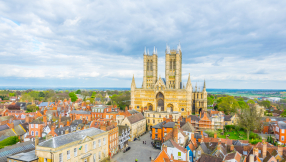More than two dozen Christian converts in a village in southern Laos could be expelled for their faith if government officials fail to keep local authorities from violating their constitutional rights, according to an advocacy group.
A story by Morning Star News reported that the Christians from eight families in Natahall village, in Savannakhet Province's Phin District, were told to renounce their faith three months ago, according to a representative with Human Rights Watch for Lao Religious Freedom (HRWLRF).
"The threats are very real ... Officials are still intending to carry out the threats. The deadline for expulsion has passed," said the HRWLRF source, who spoke on condition of anonymity.
The source added, "Christian residents of Natahall village are fighting hard to keep their homes as well as their constitutionally guaranteed right to believe in the Christian faith."
Religious affairs officials from Phin District are holding discussions with the Natahall village chief, identified only as Amka, leaders of the local chapter of the ruling Lao People's Revolutionary Party and district police. The threat of expulsion, however, has not been withdrawn, the source said.
Local officials on Dec. 2 sent an eviction order to five Christian families, according to HRWLRF.
On Dec. 8 2013, the village chief publicly declared that the Christian families who had converted to Christianity would be held responsible for any deaths villagers might suffer as a result of spirits angered by violation of traditional beliefs and customs. Animism and ancestor worship are prevalent across Laos.
Morning Star News said the village chief offered to relocate the Christian families to another village in the same province. Not only did the Christians refuse to renounce their faith, but three more families in the village put their trust in Christ, the source said.
On March 11, the village chief and local police summoned the eight Christian families for a four-hour meeting and once again ordered them to abandon their faith.
"We fought to get rid of the Americans, and now you are bringing their religion into our homes," an official told the Christians, according to the HRWLRF source.
Sections of the Hmong tribe in Laos an d Vietnam, some of whom were Christians, sided with the United States in the fight against communism in Southeast Asia.
HRWLRF has urged the communist government of Laos to allow the Christian families to exercise their religious freedom as guaranteed in the country's constitution.
Article 30 of the 1991 constitution recognizes religious freedom, saying, "Lao citizens have the right and freedom to believe or not to believe in religions."
However, to restrict religious freedom, the government often cites Article 9, which reads, "All acts of creating division of religions and classes of people are prohibited."
In 2004, then-U.S. President George W. Bush extended normal trade relations to Laos, overlooking calls from human rights groups for the continuation of the boycott of the communist regime.
The legislation Bush signed into law to normalize relations with Laos argued that "expanding bilateral trade relations that include a commercial agreement may promote further progress by the Lao People's Democratic Republic on human rights, religious tolerance, democratic rule, and transparency, and assist that country in adopting regional and world trading rules and principles."
However, Morning Star News reported, critics claim that the U.S. decision has not reduced persecution of Christians and other minorities, which involves expulsion from villages, forced relocation, pressure to recant faith, arrest, destruction of livestock and crops and closure of churches.
Laos has been a single-party state since the end of the Laotian civil war in 1975. The government also keeps the majority Buddhist population somewhat under its control. It severely restricts freedom of assembly and association as well, apparently out of fear that any unrestrained grouping in the country might one day become a threat to communist rule.
Morning Star News said the HRWLRF notes that the U.N. International Covenant on Civil and Political Rights, ratified by Laos in 2009, upholds the right to adopt a religion/belief of choice as well a s the right to manifest that religion/belief in a corporate worship (Article 18).
Any form of coercion impairing the freedom to have and manifest one's religion/belief of choice is condemned in the Covenant.













